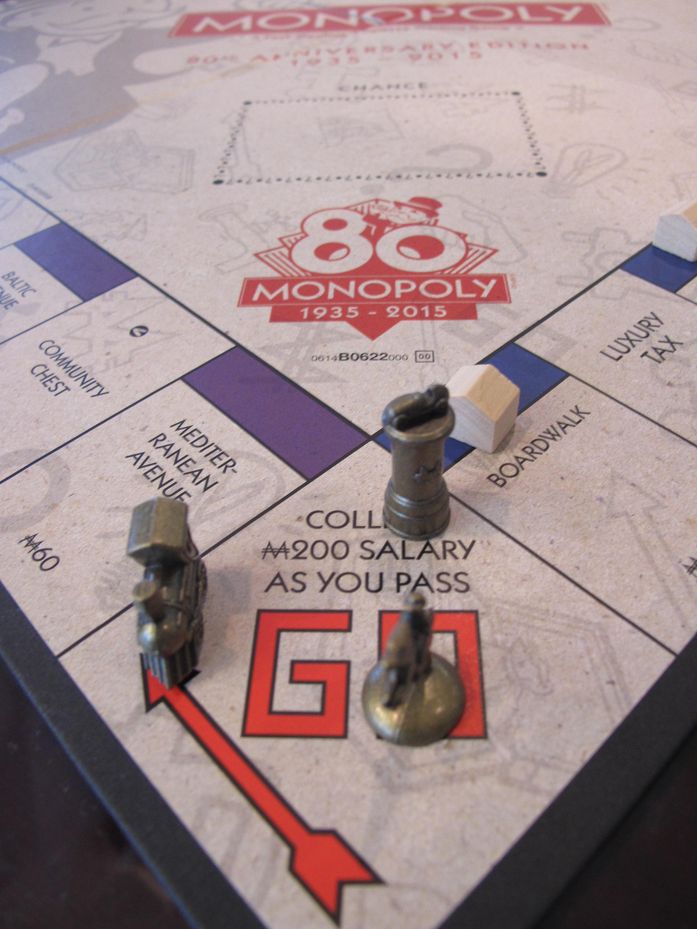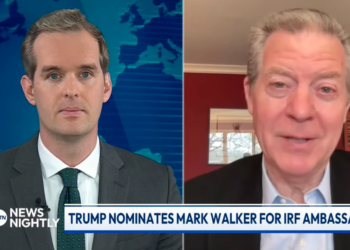
Tabletop games have had a massive renaissance over the past decade, producing success even for smaller companies, but President Trump’s tariffs threaten to decimate the industry because it relies almost exclusively on production in China.
The tabletop gaming industry includes role-playing games, war games, sports replay games and traditional board games. Market research firm Arizton said the industry was valued at more than $27 billion last year and is expected to reach $49 billion by 2029, with an annual growth rate of 10%.
However, industry leaders warn that Mr. Trump’s new 104% tariff on China will be catastrophic. The industry is made up primarily of small, independent developers that publish only a handful of game titles.
They say Mr. Trump’s goal of moving manufacturing to the U.S. isn’t an option for the board game industry, and previous attempts have failed.
John Stacy, executive director of the Game Manufacturers Association, called the tariffs “absolutely devastating.”
“We are not a strategic industry. We are not making steel or computer chips, and we are just trying to give people fun, so it’s hard to be lumped in with everything else,” he said.
Mr. Stacy said the tariffs will have a “domino effect” on the industry. Consumers with less disposable income will buy fewer games, hurting stores, which will order fewer games, impacting distribution. That will result in larger game companies laying off employees and smaller publishers going out of business.
Most miniature figures, dice, tokens, cards, game boards, rule books, paper, chipboards and other printed materials are produced in China, which is facing the steepest tariffs in Mr. Trump’s bid to rebalance global trade.
China isn’t the only producer of gaming materials, but the other countries that make dice and wood are also being slapped with high tariffs. Vietnam (46%), India (26%) and several European Union countries (20%) are increasingly producing dice and printed and wood parts for games.
Stonemaier Games, which had a breakout hit in 2019 with Wingspan, posted a grim assessment of the industry’s future once Mr. Trump’s tariffs hit.
“Any publisher — big or small, new or old — without cash reserves is in deep trouble, especially if they currently have games in production in China,” the company wrote. It added that publishers would increasingly turn to “low-cost, high-markup products” that can be sold directly to consumers or via limited runs on crowdfunding sites, thus avoiding the game store.
Mr. Trump said companies should make their products in the U.S. if they don’t want to pay tariffs.
Several companies tried but failed to find production sites in the U.S., where high labor costs and the training of unskilled workers priced out smaller game companies.
The industry estimates that a board game requires a fivefold return on investment to be financially viable. If a game costs $10 to manufacture, companies must sell it for $50 to recoup the money spent on designing and creating it and earn a profit.
Steve Jackson Games, which has produced tabletop games such as Ogre and Deadly Doodles since 1980, said it has been looking into domestic manufacturing, but “full-scale board game production doesn’t meaningfully exist” in the U.S.
“I’ve gotten quotes. I’ve talked to factories. Even when the willingness is there, the equipment, labor and timelines simply aren’t,” CEO Meredith Placko said in a statement.
Quimbley’s Toys & Games, a gaming startup, decided last year to build a manufacturing plant in Utah so its products could be produced in the U.S. instead of China. Building and operating the plant became so expensive that the company barely survived, said Steven Heumann, a Quimbley employee who detailed the experience in a blog post.
Mr. Heumann wrote that even after spending money for machines to ramp up production, Quimbley still couldn’t compete with Chinese prices or produce game accessories at a scale that would make them viable mass-market products.
Production became so expensive that the company had to scale back. To survive, some employees stepped away so money could be reallocated to expenses “vital” for the company’s success, he wrote.
As a result, Quimbley survived in a “truncated” form, streamlining some of the games and creating more affordable versions than what was initially promised on crowdfunding sites, said Mr. Heumann. He said some backers are still angry they are not getting what was promised.
“Manufacturing is a more complicated process than we give it credit as we complain about China and tariffs and everything else. It requires not only the machines to get it done but the expertise and innovation that comes with creative minds fusing with math and engineering,” he wrote. “Just because something looks easy doesn’t mean it is.”
Still, Mr. Trump has assured Americans that a manufacturing renaissance is on the horizon.
The president “is guided by a firm belief that America must be able to produce essential goods for our people and export them to the rest of the world,” White House press secretary Karoline Leavitt recently told reporters. “By focusing on supercharging the onshoring of American manufacturing, the president is already delivering on his promise to usher in an economic golden age for our country.”
Beyond manufacturing, the tariffs will affect crowdfunding, which is responsible for roughly 40% of gaming projects. Several smaller gaming companies just completed crowdfunding new games that have yet to be published.
With the threat of tariffs raising costs, companies are forced to cover the cost of a larger print run or hope viral success will increase sales. Going back and asking those who donated for more or refunding the money already provided would likely kill a young company.
Even producing a more affordable version of the crowdfunding campaign’s promise could hurt a company in an industry where word-of-mouth is crucial.
“Companies are going to have to figure out how to keep the promises they made,” Mr. Stacy said. “A smaller company may have to cut corners or ask for more money from backers. If you are not confident, don’t start your project now because you could damage your company.”




![Jasmine Crockett Justifies Mass Illegal Immigration With Bizarre Argument [WATCH]](https://www.right2024.com/wp-content/uploads/2025/03/1742007023_Jasmine-Crockett-Justifies-Mass-Illegal-Immigration-With-Bizarre-Argument-WATCH-350x250.jpg)


![NYC Tourist Helicopter Falls into Hudson River, Siemens Executive and Family Among Those Killed [WATCH]](https://www.right2024.com/wp-content/uploads/2025/04/NYC-Tourist-Helicopter-Falls-into-Hudson-River-Siemens-Executive-and-350x250.jpg)









